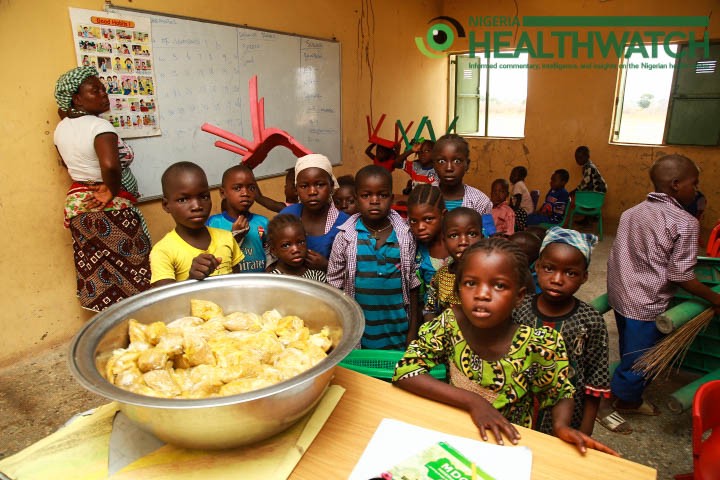By Akanimo Sampson
The World Food Programme and UNICEF say 370 million children are missing out on school meals amid school closures due to the rampaging COVID-19.
These two UN agencies are accordingly urging national governments to prevent devastating nutrition and health consequences for children.
Sadly, the COVID-19 crisis is already pushing up levels of hunger among the global poor.
In Nigeria, the Federal Government has said it will not endanger the lives of children by opening schools.
Minister of State for Education, Emeka Nwajiuba, says there is no date yet for schools in the country to resume.
While clarifying that the West African Examinations Council has not cancelled its external exams as students, he said candidates will still go and take those exams when the government has taken good care of the pupils.
According to him, the Federal Ministry of Education could not foresee or give any date when schools will be resuming in the country.
“The president actually addressed the issue of the opening of the economy gradually. Until that is done, we can’t foresee or immediately tell you when all the schools will be reopened. It will not be proper for us to simply give you a date.
‘’It has to be in tandem with these opening terms. We don’t want to put our children at risk. None of these schools can function on their own. On the question of children promoting to the next class, those exams will happen when we are satisfied that the children have learnt enough for them to move to the next class.
For those who are in the exit classes of junior basic and senior secondary schools, we are preparing them and will continue to. This will go on until we are sure that they are equipped for the external examinations.
‘’The West African Examinations Council has not cancelled their external exams. It was postponed indefinitely. This indefinite nature is so that we can get a definite date. Students will still have to go and take those exams when we are sure that we have taken good care of the pupils.”
In the meantime, WFP Executive Director, David Beasley, says “for millions of children around the world, the meal they get at school is the only meal they get in a day. Without it, they go hungry, they risk falling sick, dropping out of school and losing their best chance of escaping poverty.
‘’We must act now to prevent the health pandemic from becoming a hunger catastrophe.”
School meals are especially critical for girls. In many poor countries, the promise of a meal can be enough to make struggling parents send their daughter to school, allowing her to escape heavy domestic duties or early marriage.
For the UNICEF Executive Director, Henrietta Fore, “school is so much more than a place of learning. For many children, it is a lifeline to safety, health services and nutrition. Unless we act now – by scaling up lifesaving services for the most vulnerable children – the devastating fallout caused by COVID-19 will be felt for decades to come.”
Alongside school meal programmes, children in poor countries often benefit from health and nutrition services – such as vaccinations, de-worming and iron supplementation – delivered through their schools.
In response to a recent report from the United Nations Secretary-General, which highlighted the number of children missing out on school meals, WFP and UNICEF are working with governments to support children who are out of school during the crisis.
In 68 countries, governments and WFP are providing children with take-home rations, vouchers or cash transfers as an alternative to school meals.
Under the partnership, WFP and UNICEF will assist governments in the coming months to ensure that when schools reopen returning children benefit from school meals and health and nutrition programmes.
This will also provide an incentive for parents to send their children back to school. The agencies are also working together to track children in need of school meals through an online School Meals map.
To support this work – which will initially focus on 30 low-income or fragile countries to support 10 million children – UNICEF and WFP are appealing for $ 600 million.
Their work will be closely aligned with the UNESCO-led Global Education Coalition, a global push to ensure children keep learning despite the disruptions caused by COVID-19.
WFP is, however, the world’s largest humanitarian organisation, saving lives in emergencies, building prosperity and supporting a sustainable future for people recovering from conflict, disasters and the impact of climate change.
On the other hand, UNICEF works in some of the world’s toughest places, to reach the world’s most disadvantaged children. Across more than 190 countries and territories, it is working for every child, everywhere, to build a better world for everyone.

